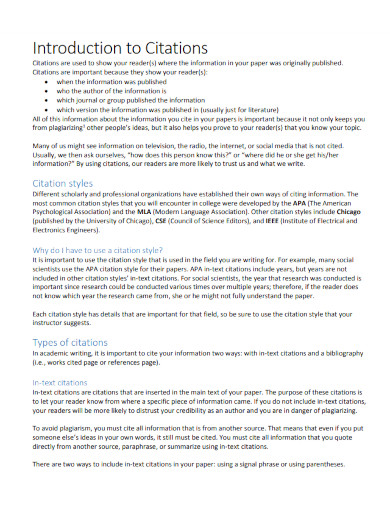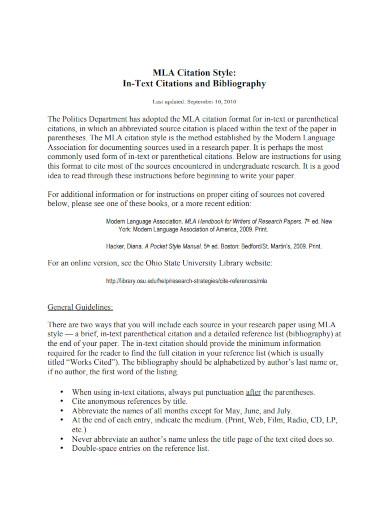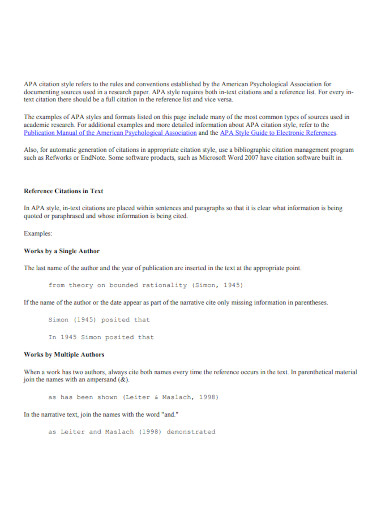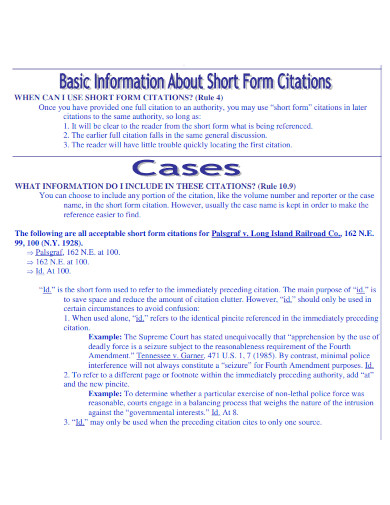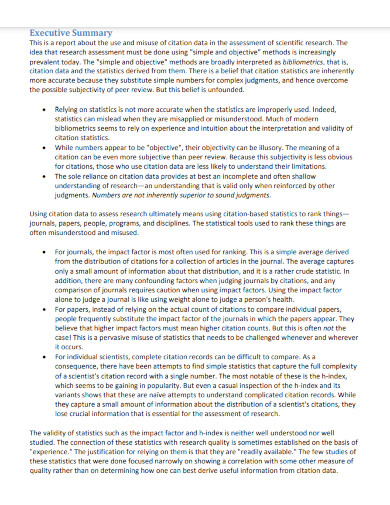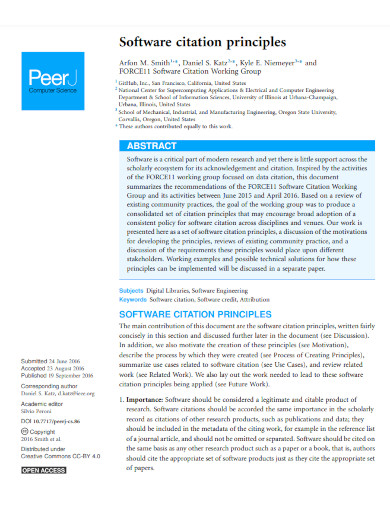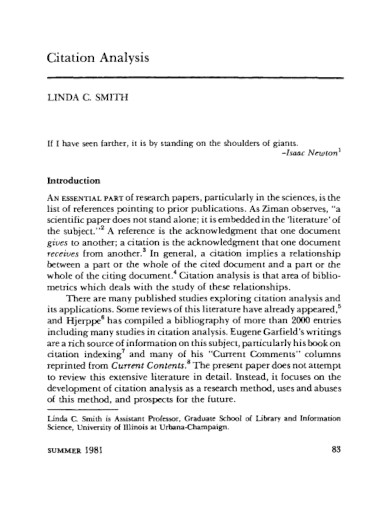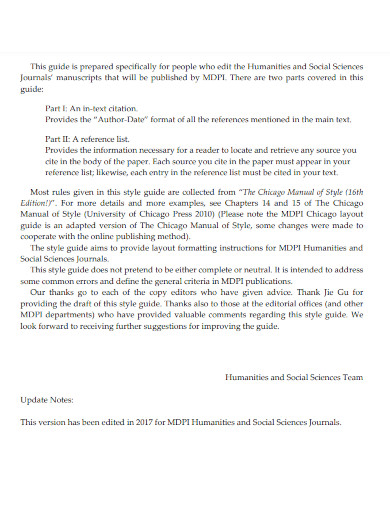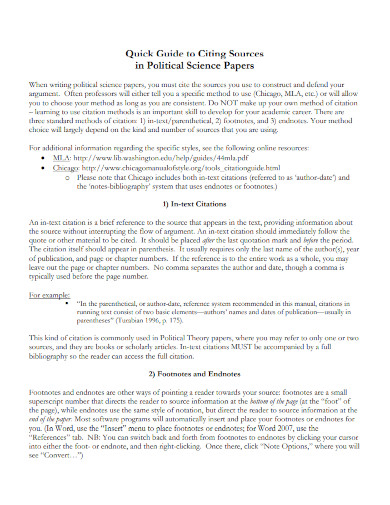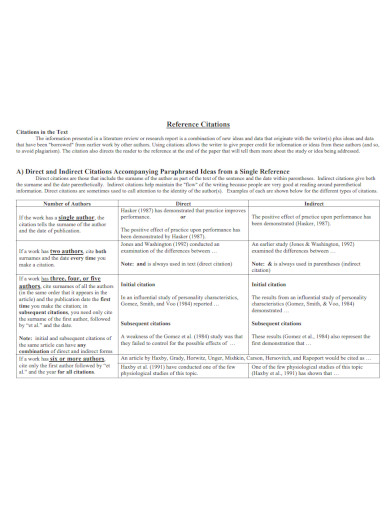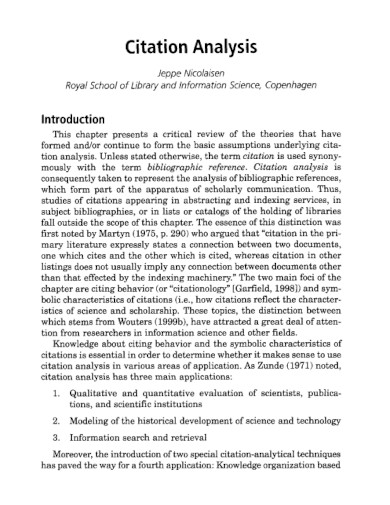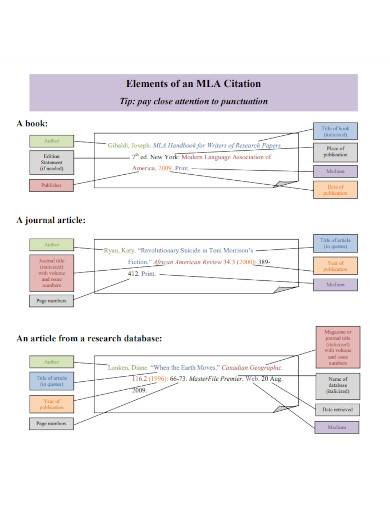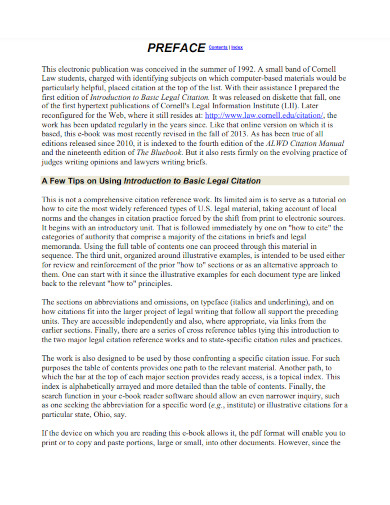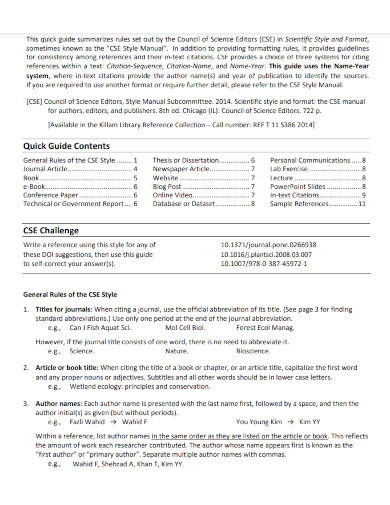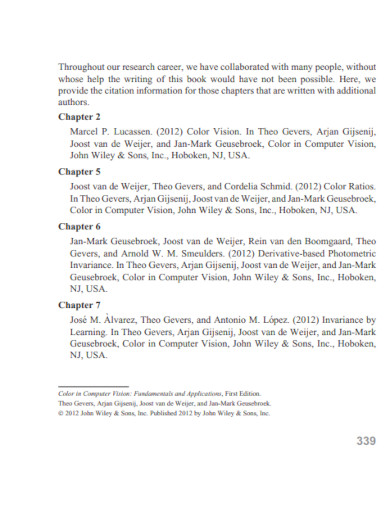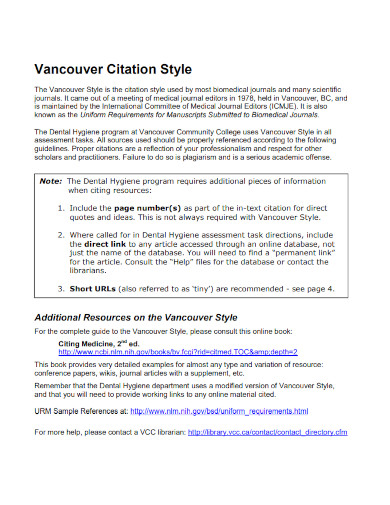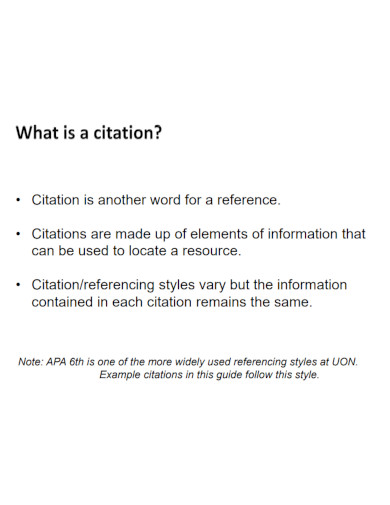16+ Citation Examples
When it comes to citing your sources, it is always important to remember that even in citations, there are strict outline formats that you need to follow. That there are also a lot of types of citations and to gain enough knowledge to know the difference and which correct citation format to use.
1. Introduction to Citations
2. MLA Citation Style
3. APA Citation Style
4. Bluebook Shortened Citation
5. Citation Statistics Template
6. Software Citation Principles
7. Citation Analysis Template
8. Reference List and Citations Style Guide
9. Citing Print Sources
10. Reference Citations Template
11. Nicolaisen Citation Analysis
12. Elements of an MLA Citation
13. Introduction to Basic Legal Citation
14. CSE Citation Style Quick Guide
15. Citation Guidelines
16. Vancouver Citation Style
17. Elements of a Citation
What Is a Citation?
Citations are references to the source of information, research paper summary, or work that you have done. They are usually found below the research or writing. However, some citations can also be within the same line of the information that they are used in. Citations include information like the author’s name, work title, date of publication, and name of publisher.
How to Use Citations
Citations are a crucial part of academic writing, as they allow you to give credit to the sources you have used in your work and to show that you have done thorough research. Here are some general steps for using citations in your writing:
Step 1: Decide the Type of Citation You Are Using
As there are a lot of types of citations, it is best to be able to know which type of citation you are going to be using. The common styles of citations are: APA, MLA, Chicago, and Harvard. Decide the type you are going to use for your writing.
Step 2: Make Sure to Identify the Correct Citation Format
Be sure to identify the correct citation format you are going to be using. This would also affect the outline format for your citation. It is always best to consult a citation style guide first before doing anything.
Step 3: Identify the Sources You Have
Identify the sources. These information can range from different sources. May it be from a book, a journal, a website, a book, or an article. Always write down and identify which source you got the information from. To avoid plagiarism.
Step 4: Make Your Reference List
Lastly, make your reference list or your citation list. This includes the bibliography. At every end of your writing or your work, it is already expected to have a reference list or a citation list. These reference lists would also depend on the citation format or citation used.
FAQs
What are the different types of citations?
The different types of citation formats are: APA format citation, APA in text citations, APA citation, MLA citation, MLA in text citation, parenthetical citation, work cited, AMA format, bibliography citations, and Chicago style paper.
What citation style should I use for my academic paper?
There are several citation styles used in academic writing, such as MLA, APA, Chicago, and Harvard. The style you use will depend on the guidelines set by your instructor or the publisher you’re submitting your paper to. It’s important to follow the guidelines carefully to ensure your citations are accurate and consistent throughout your paper.
Do I need to cite common knowledge in my paper?
No, you don’t need to cite information that is considered common knowledge. This includes widely known facts, historical events, and commonly accepted theories or ideas. However, if you’re unsure whether a particular piece of information is considered common knowledge or not, it’s better to err on the side of caution and cite your source to avoid any potential plagiarism issues.
Citations are often and mainly used in academic or scholarly writing, and even for research papers. Citations are used as a means to give credit to the original authors and allow your audiences to locate the original source of information you are using.



